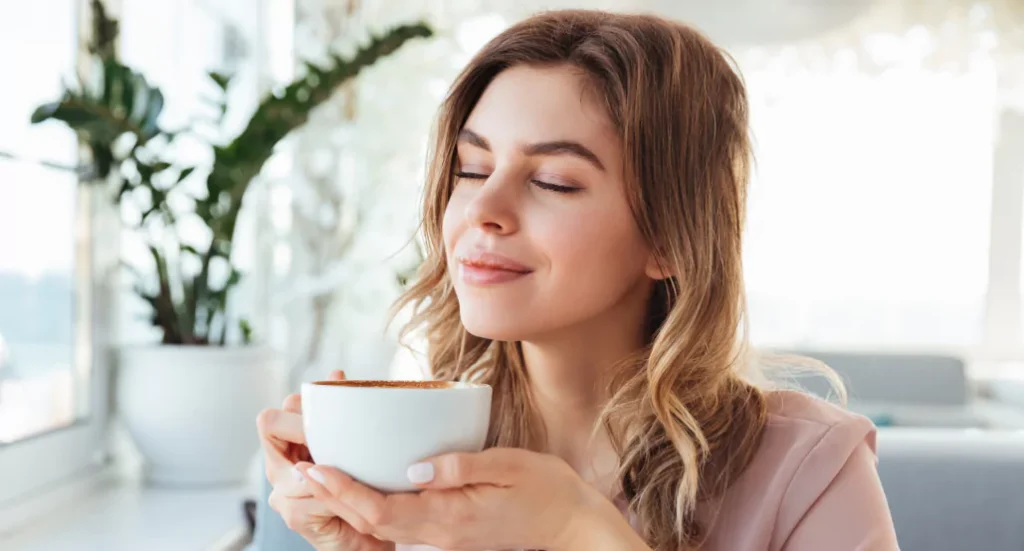When Priya Parker, author of The Art of Gathering: How We Meet and Why It Matters , asked me to do just that, my mind pictured an overflowing bottle of Champagne and clinking glasses. “Alcohol has become a symbol of the holidays, ” Parker said. From wine at the office party to the requisite bubbly on New Year’s Eve, drinking seems indisputably linked to holiday cheer.

That’s why saying “no” when it comes to drinking alcohol can provoke uncomfortable reactions, said Millie Gooch, founder of Sober Girl Society, a community in Britain that organizes alcohol-free events. When I turn down a drink, for example, I’m asked if I’m pregnant, as if that’s the only acceptable way out for women my age. Saying “no” also exposes you to increased peer pressure. We’ve all encountered the party-goer who uses the phrase “One drink never hurts anyone.”
Sometimes people react as if “you’re rejecting the holiday, and not just the alcohol itself,” Gooch said. “It’s like you’re saying, ‘No, I don’t want to celebrate Christmas,’ that’s how a lot of people perceive it.”
Whether you’re “sober curious,” in recovery from addiction, abstaining for health or religious reasons, or just don’t feel like drinking, the holidays can feel like a minefield, said Pete Vernig, a psychologist and vice president of mental health services at Recovery Centers of America. But with some planning, a fun, alcohol-free season is doable, he added. “Now is the time to think about it, rather than a couple of weeks from now,” Vernig said.
Try these ideas
Practice saying no
Practicing what you’re going to say when offered a drink is key, Vernig said.
Gooch suggests saying something vague but decisive about why you’re not drinking, something like “It just doesn’t benefit me anymore” or “I don’t feel like it today.” Others may feel more comfortable providing a specific reason for abstaining, such as having to drive home or having to get up early the next day.
Accept the fake Negroni.
In recent years, bars and drinks brands have started to offer creative non-alcoholic alternatives, such as non-alcoholic mulled wine, non-alcoholic margaritas, and other cocktails. This means you can still enjoy something delicious to sip on and a drink that has enough mixability that you don’t need to explain what you’re drinking if you don’t want to.
Accept FOMA
“When you consider socializing without alcohol, you can get what I call FOMA (fear of missing alcohol),” said Ruby Warrington, author of the book Sober Curious and host of a podcast of the same name. “You’re so used to alcohol being a sort of social lubricant that allows you to relax and relieve your social anxiety, that the idea of not having it in those situations can be really scary.”
Reminding yourself of the benefits of not drinking, such as avoiding hangovers and low mood the next day, can help reduce some of that anxiety, she said. Another thing to keep in mind: According to some research, drinking may not directly help with social anxiety as much as one might think.
Ultimately, the only way to combat FOMA, Warrington said, is to rip off the Band-Aid and do what’s troubling you anyway: “So often people realize, and I’ve experienced this in my own life, that it’s a lot easier to have fun without alcohol than you thought.”
People associate alcohol with fun because of how many times the two could have gone hand in hand, Vernig said, such as laughter-filled meals with friends. But “alcohol is not what makes those moments fun,” she said. “What makes them fun is being able to spend time with the people you care about.”
Find other kinds of fun
“Whatever your drink preference, we’re all looking for connection, joy and a certain amount of escape from the day-to-day,” Parker said. “And there are many ways to spark joy.” For example, singing, whether it’s Christmas carols or karaoke, is known to promote social bonding, while something physical, like ice skating, can boost your mood without the need for alcoholic beverages.